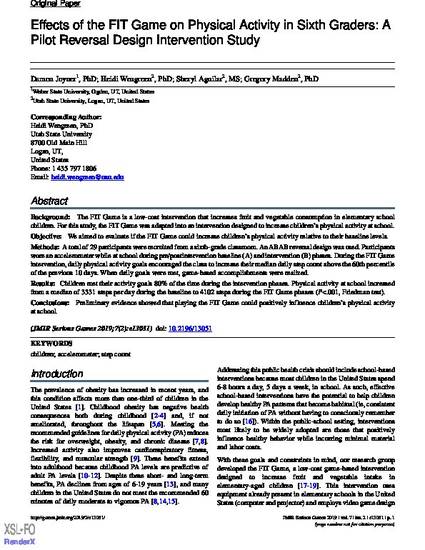
Background: The FIT Game is a low-cost intervention that increases fruit and vegetable consumption in elementary school children. For this study, the FIT Game was adapted into an intervention designed to increase children’s physical activity at school.
Objective: We aimed to evaluate if the FIT Game could increase children’s physical activity relative to their baseline levels.
Methods: A total of 29 participants were recruited from a sixth-grade classroom. An ABAB reversal design was used. Participants wore an accelerometer while at school during pre/postintervention baseline (A) and intervention (B) phases. During the FIT Game intervention, daily physical activity goals encouraged the class to increase their median daily step count above the 60th percentile of the previous 10 days. When daily goals were met, game-based accomplishments were realized.
Results: Children met their activity goals 80% of the time during the intervention phases. Physical activity at school increased from a median of 3331 steps per day during the baseline to 4102 steps during the FIT Game phases (P
Conclusions: Preliminary evidence showed that playing the FIT Game could positively influence children’s physical activity at school.
